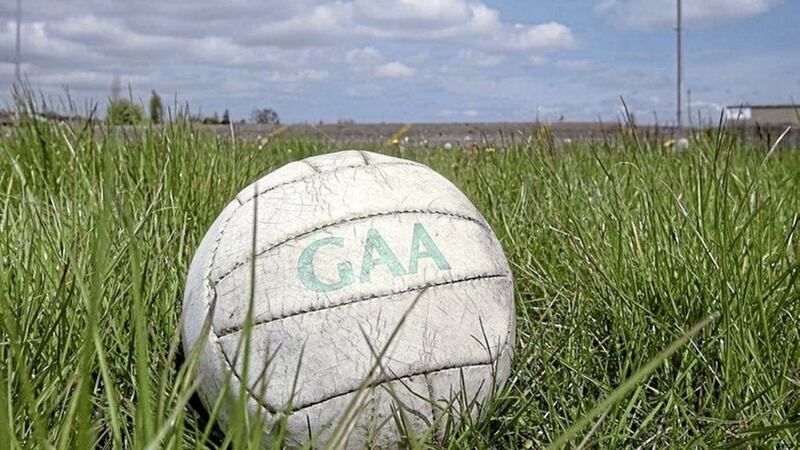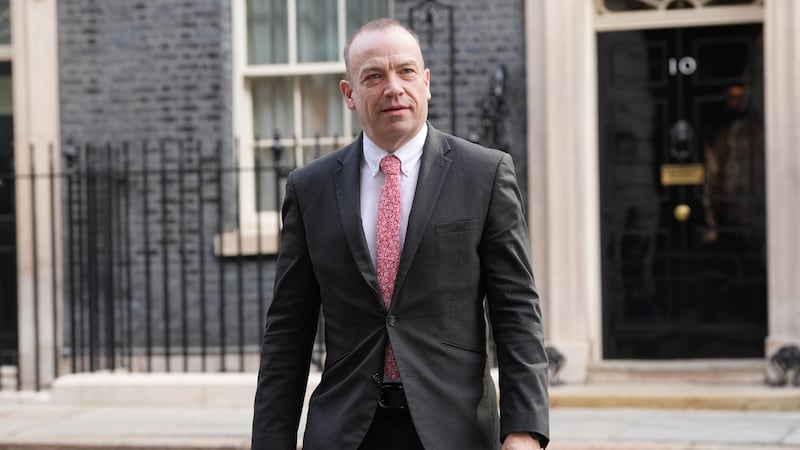FUNDING for a GAA coaching scheme in schools will run out within weeks – and it is feared that more money can only be approved by a minister.
There are concerns about the future of the Curriculum Sports Programme, which involves Gaelic and soccer coaches visiting primary schools. It has been running for a decade and thousands of children have taken part.
Extra money to save the scheme has been found twice since the collapse of the executive in January last year.
But with money due to end next month, the Department of Education has said it needs a minister to approve any continuation.
Ulster GAA provides 25 coaches, and the Irish FA 28, to work with about 450 schools a year. About £1.3 million has been spent by the department annually.
The programme was provided under contract by the GAA and Irish Football Association (IFA) and the department invested more than £10m since it first launched.
Overall budgets are being slashed across the system, meaning cuts must be made.
Pressures on the education budget in 2017/18 meant the programme only survived when extra cash was found through monitoring rounds.
Money was originally due to end in October last year but department civil servants approved an extension until March this year, even though there was no minister in place.
In March the department advised Ulster GAA and the IFA that it was providing £750,000 for the continued delivery of the programme until the end of next month, again without ministerial approval.
A recent High Court ruling cast doubt on major decisions being taken by civil servants.
In May a judge said a senior official had no legal power to approve a new £240m waste incinerator following the collapse of devolution.
Planning permission was granted last September for the controversial Hightown facility on the outskirts of north Belfast after the Department for Infrastructure said it was in the public interest.
However, Mrs Justice Kee-gan said she did not consider that “parliament can have intended that such decision-making would continue in Northern Ireland in the absence of ministers without the protection of democratic accountability”.
The ruling placed question marks over projects still in the pipeline.
SDLP MLA Justin McNulty, an All-Ireland winner with Armagh, said the department would be unable to deliver the programme without a minister to allocate funding.
The department suggested it was not as straightforward.
The 2018/19 budget strategy, it said, was developed in the context of an extremely challenging financial position and the available funding was focused on core services of early years, youth services and schools.
It said £750,000 was made available for the continued delivery of the programme until the end of next month.
“This was to give the department the opportunity to consider its future priorities in relation to physical education in primary schools, particularly in the context of the need to address rising levels of childhood obesity and type 2 diabetes,” a spokeswoman said.
“This work is being progressed in collaboration with colleagues in other departments and is still at an early stage. Seven hundred and fifty thousand pounds is all that is available for the programme this financial year.
“Providing more funding would mean equivalent cuts to some other area of the department’s programmes. Over recent months Department of Education officials have engaged with both the IFA and Ulster GAA to explore various options for using the funding available in 2018/19, including extending the timeframe for delivery of the programme beyond October.”
Mr McNulty said the programme was of immeasurable value.
“The project seeks to develop skills, raise confidence and self-esteem and the motivation to help children and young people learn other curriculum areas cannot be overstated. The programme also goes some way in helping prevent obesity, type 2 diabetes and mental ill health,” he said.
“It was confirmed that the revenue generated from the soft drinks levy could have been invested into a new cross-departmental policy to tackle issues of obesity and type 2 diabetes. However, without a minister in place to hypothecate this action, this cannot happen and the Curriculum Sports Programme is not guaranteed to continue past October due to lack of allocated funding.
“This is another horrific example of the collateral damage of the ongoing political deadlock.”
Sinn Féin assembly member Sinéad Ennis called for a cross-departmental approach to ensure school children could continue to avail of the programme.
The party’s culture, arts and sports spokeswoman also said a significant number of jobs were at risk.
“Any cut under this Tory/DUP budget would have a severely damaging impact on sporting projects within our local schools and to the tens of thousands of children who practically benefit from this funding," she said.
“There should be a cross-departmental approach to ensuring that school children can avail of the Curriculum Sports Programme and I would urge the department to apply for in year funds in the October and January monitoring rounds."
The Ulster Council said: “Ulster GAA and The Irish Football Association, with the support of political representatives, are in discussions with the department in relation to the funding of the Curriculum Sports Programme.”








